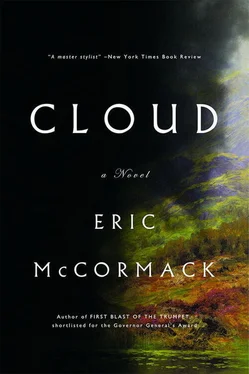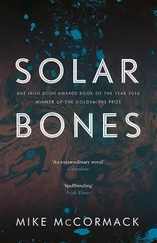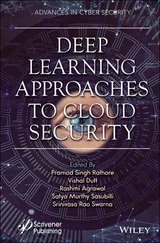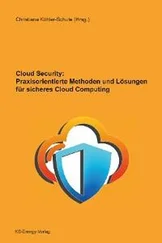DUPONT ORDERED A bottle of wine and we sipped and talked till dinner was served. Marsha, I discovered, worked for the United Nations. She and Dupont had met only a few months ago. He’d amused her with stories about his various postings around the world and the strange customs he’d encountered.
“One thing led to another,” she said, glancing at Dupont affectionately.
“Including the bedroom,” Dupont added. They both laughed at that.
The more wine I drank, the more I liked the look of her. She was really quite the opposite of Dupont’s long-dead lover, Clara, who’d been aged prematurely by the African sun and made no attempt to disguise it. Marsha was in fact middle-aged but, by artifice, tried to appear younger. She didn’t smile much and I wondered if even that was an attempt to discourage the wrinkles.
WE WERE ALL HUNGRY, so while we ate the main course, talking was minimal. But as we relaxed awaiting dessert we began to talk more. Remembering that Dupont had spent some time in the Pacific, I told them about my trip to Oluba and seeing the tattooed women there. I mentioned that in recent years the fertility cults associated with full-body tattooing had disappeared, but it was still a form of female ornamentation.
“How interesting,” said Marsha.
I liked how she looked cool and curious at the same time.
“Well now, Harry,” said Dupont. “You say the women’s tattooing was full body, eh? How did you find out?”
We all laughed.
“Still, the fact that tattoos don’t have a ritualistic significance in Oluba any more might be taken as a sign of progress,” said Dupont. “Some of the other island chains used to cling hard to old customs, and that interfered with any efforts to bring them into the modern world.” He began to reminisce about his years on Manua, which was a long way south of Oluba. He remembered especially his attempt to set up a clinic there and coming up against traditional beliefs — a story he’d told me back when we first met. The Manuans had a complex belief system centred on reincarnation. They wouldn’t take his medicine for they didn’t want to be cured of any illnesses they suffered in this life. If they did, they were convinced they’d be smitten even more painfully in their next incarnation.
“So how did you get them to use your medicine?” said Marsha.
“I didn’t,” said Dupont. “I tried every way to persuade them, with no success. It was actually quite humbling, as a man with a scientific background, to be completely baffled by a view of the world that hadn’t changed since the Stone Age. Part of the problem was that we didn’t share any common ground for arguing the point.
“For example, their head shaman couldn’t even grasp what I was getting at when I tried to explain the basic concept of two and two adding up to four. He showed me how wrong I was. He took two pieces of string and tied two knots in each of them. Then he said to me: Look, you can’t join them without another knot! See? He tied the two strings together and pointed out that now there were five knots. After that, he treated me like one of their pre-adolescent children.”
We were amused at such perversity.
“Couldn’t you have claimed that your knowledge came from the gods, just as a shaman’s did?” Marsha said.
Dupont shook his head.
“The power of rational thinking is the one thing a scientist must believe in. It’s more important than life itself,” he said, not in a pompous way but as though he really meant it — and didn’t work at an institute where he cut out parts of people’s brains in the name of scientific research.
From the way Marsha looked at him it was obvious she was impressed. Oddly enough, in spite of what I knew about his work, I envied him his conviction, at least to an extent. Long ago, it seemed to me, I’d lost sight of any principle worth more than life.
AFTER DESSERT, we left the restaurant and went to the barroom with its great stone walls and fireplace. We found a quiet table where we could sit and enjoy our brandies. I told them about my recent trip to La Verdad, my finding of The Obsidian Cloud , and its description of a fantastic occurrence over the skies of Duncairn back in the nineteenth century.
“Duncairn!” said Dupont. “Well, well. I’ve already told Marsha you lived there years ago.”
She’d been listening to my account with great interest.
“Yes, he did tell me you’d been there,” she said to me. “I’m afraid the days of fantastic happenings are gone now, from Duncairn and everywhere else in the Scottish Uplands. I know that only too well, for my department’s concern is with depopulation in various parts of the world. We try to determine its causes and possible remedies for it, if remedies are called for.
“About five years ago, I was assigned to study the situation in the Uplands because of the steady exodus of its people. I drove from one end of the region to the other interviewing as many of the remaining inhabitants I could find, as well as occasional visitors such as hunters and anglers.
“As for Duncairn specifically … well, the town isn’t really there anymore. At least, not as you’d remember it. That entire area doesn’t have many permanent inhabitants now, except for the occasional shepherd.”
MARSHA NOW LAUNCHED into a devastating history of the decline of the region during the decades since I’d left it. The main cause was that the coal mines, which had employed most of the male population, were shut down — either because they’d run out of coal or because changing economic and political times made it an unpopular form of energy. Towns like Cumner, Rossmark, Lannick, Taymire, and Gatbridge — which had all existed in some form since at least the Middle Ages — were now abandoned.
“It’s almost as though the land was cursed,” said Marsha.
Hearing her use the word “cursed” reminded me of how Miriam, long ago, had described some of those strange happenings in various Upland towns: Stroven, with its sinkhole into which the entire town was gradually sliding, and Muirton, with its regiment of one-legged men. Then there was Carrick — strangest of all — its population smitten with the mysterious and deadly talking plague. They had indeed sounded like towns that were cursed.
“I’m afraid I’ve never heard of those cases,” Marsha said. “But when I visited Duncairn, the mine had been shut down for ten years. That was really the end for the town. Today there are only a few inhabitants, and the buildings are falling into decay. Though there’s still an old hotel, mainly for passing tourists and hunters.”
THIS NEWS OF Duncairn’s fate was a blow to me. Like most people who’ve left their native land and not returned for many years, I’d preserved it in my mind just as it had been when I lived there. That image of Duncairn defied all such common-sense notions as the passing of time. The same applied especially to Miriam Galt — for me, she must be as young and beautiful as ever. If the more practical side of my mind ever intruded to point out that this simply couldn’t be so, I’d push it away.
And so to hear this objective, eyewitness account of the depopulation of the Uplands and the decline of Duncairn upset me deeply. It was as though some vital component of myself as a human being was likewise erased. The idea that there was once a young man who’d lived for a few short months in Duncairn, full of hope, was all-important to me. The common-sense view— that in the course of our lives we’re many people, some less pleasing to us than others, that the young man who’d spent time in Duncairn was only one character in the long story that makes up a person — was at times very hard for me to accept.
DUPONT GUESSED something of what was going on in my mind.
Читать дальше











